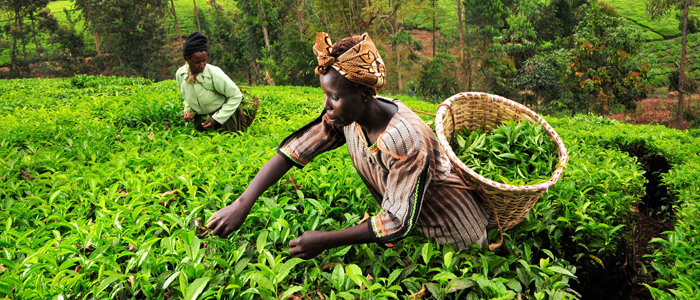
Photo by Neil Palmer (CIAT)/Flickr
The Global Research Competition -- a competitive grant program designed to provide early-career social science researchers from developing and transition with a platform to investigate international development challenges through collaborative cross-country or inter-regional research projects -- ran from 2013 to 2016, targeting a range of topical development issues.
Research Themes and Topics
The competition focused on diverse research themes originating from the policy research priority areas defined by GDN's Global Research Agenda. Research themes were selected to encourage collaboration among researchers across regions.
Find out more about themes under each round of the competition:
Second Round (2013)
Third Round (2016)
Research Activities
Research projects involved the following types of research activities:
- Applied research
- Case studies
- Comparative studies
- Critical analyses of existing research
Research Grant
GRC grants were given for a duration of 18 months. The value of the grant varied according to various aspects of the research project; such as team size and composition and scope of the research project. The best performing research teams also had the opportunity to apply for GDN’s large-scale, high-caliber GRPs. Up to US$ 32,000 was awarded to support the following:
- Expenses necessary to conduct research and
- Outreach and dissemination activities
Research Capacity Building and Learning
Having an integral capacity building component, the competition engaged world renowned experts as mentors to guide the winning research studies. In addition, a Steering Committee provided guidance and support to drive the competition. Before the final submission of research proposals, a methodological training workshop provided hands-on technical training, individual proposal preparation guidance and assistance with the comparative nature of the research. On the basis of the quality of applications and the demonstrated need for capacity building, the training targeted young researchers to help them enhance their research design and proposal writing skills, thus improving the overall quality of the proposals as well as the social utility of the competition itself.
- Global Training Workshops: Research teams with the most promising and interesting ideas receive training and guidance from world renowned experts at a global workshop, before submitting their final proposals.
- Individual Mentoring: Winning research teams benefit from intensive mentoring throughout the grant performance period, from inception to completion. The mentoring responsibility within each research team lies with a senior scholar who is engaged by GDN. From time-to-time, teams also benefit from training and guidance from world renowned experts.
Steering Committee
Additionally, the research teams have the opportunity to benefit from the vast knowledge of the Steering Committee members. The GRC Steering Committee comprises renowned academics from across the globe:
- MILNER, Helen V., (Chair of the Steering Committee), Member, GDN Board of Directors; Chair, Department of Politics, B. C. Forbes Professor of Politics and International Affairs, Princeton University and Director, Niehaus Center for Globalization and Governance, Princeton's Woodrow Wilson School
- ASIEDU, Elizabeth, Professor, Department of Economics, University of Kansas
- BANERJEE, Abhijit, Ford Foundation International Professor of Economics, Massachusetts Institute of Technology
- BOURGUIGNON, François, Member, GDN Board of Directors; Emeritus Professor, Paris School of Economics
- GALAL, Ahmed, Managing Director, Economic Research Forum
- LUCAS, Robert E.B., Professor of Economics, Boston University
- NARAYAN, Deepa, Independent Consultant
- WINTERS CB, L. Alan, Chairman, GDN Board of Directors; Professor of Economics, University of Sussex
Research
Brazil, Chile, Turkey and Uruguay | Are Conditional Government Transfers a Politically Acceptable Form of Redistribution?
Europe | Reconnecting the Peripheral Wagons to the Euro Area Core Locomotive: Mission Impossible?
Latvia and Spain | Wage Dynamics and Workers’ Mobility During Deep Recessions
To find other studies completed under this program, please go to the Research section of this website, and check back frequently for updates.
